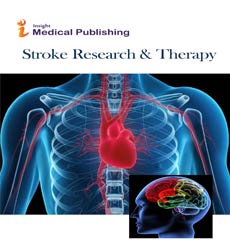Hypercholesterolemia, Precision Medicine and Monitoring Technologies in Stroke
Jenny Lord
Department of Pharmacy, NorthShore University Health System, Evanston, USA
DOI10.36648/ipsrt.8.3.216
Jenny Lord*
Department of Pharmacy, NorthShore University Health System, Evanston, USA
- *Corresponding Author:w
- Jenny Lord
Department of Pharmacy, NorthShore University Health System, Evanston,
USA,
E-mail: jenny@gmail.com
Received date: August 28, 2024, Manuscript No. IPSRT-24-19851; Editor assigned date: August 30, 2024, PreQC No. IPSRT-24-19851 (PQ); Reviewed date: September 09, 2024, QC No. IPSRT-24-19851; Revised date: September 16, 2024, Manuscript No. IPSRT-24-19851 (R); Published date: September 23, 2024, DOI: 10.36648/ipsrt.8.3.216
Citation: Lord J (2024) Hypercholesterolemia, Precision Medicine and Monitoring Technologies in Stroke. Stroke Res Ther Vol.8. No.3:216.
Description
Adverse outcomes in patients with Familial Hypercholesterolemia (FH) are closely associated with hypertension. The purpose of this study was to assess the clinical effect of blood pressure management on cardiovascular event risk. Blood pressure data was provided for all 1,273 patients (614 males and 659 women) having a clinical diagnosis of heterozygous FH. Four groups of patients were created:
Group 1
Individuals who did not have hypertension at baseline or throughout follow-up.
Group 2
Individuals who did not have high blood pressure at the beginning but developed it during the course of the study.
Group 3
Individuals with baseline and follow-up managed hypertension.
Patients in Group 4 had uncontrolled hypertension for the course of the trial.
Genetic treatments
Factors linked to cardiovascular events, such as coronary occurrences and cardiovascular death, were identi ied using Cox proportional hazards models. During the 10.9-year follow-up, which was the median, 142 cardiovascular events were noted. With hazard ratios for groups 2, 3 and 4, respectively, in comparison to group 1, blood pressure regulation was signi icantly linked to cardiovascular events. These results highlight how important it is to effectively manage blood pressure in patients who have heterozygous FH. For more than 20 years, arterial hypertension has been the primary cause of morbidity and death globally. According to preliminary Genome-Wide Association Studies (GWAS), hypertension may be treated with precision medicine. These hopes were irst dampened, though, by Factors linked to cardiovascular events, such as coronary occurrences and cardiovascular death, were identi ied using Cox proportional hazards models. During the 10.9-year follow-up, which was the median, 142 cardiovascular events were noted. With hazard ratios for groups 2, 3 and 4, respectively, in comparison to group 1, blood pressure regulation was signi icantly linked to cardiovascular events. These results highlight how important it is to effectively manage blood pressure in patients who have heterozygous FH. For more than 20 years, arterial hypertension has been the primary cause of morbidity and death globally. According to preliminary Genome-Wide Association Studies (GWAS), hypertension may be treated with precision medicine. These hopes were irst dampened, though, by
Monitoring technologies in stroke
Monitoring technologies are crucial for early detection and management of stroke risk in patients with hypercholesterolemia. Wearable devices and implantable sensors now enable continuous monitoring of cardiovascular parameters, such as blood pressure, heart rate and blood cholesterol levels. By providing real-time data, these devices allow for immediate interventions when abnormal patterns are detected, significantly lowering the risk of stroke. In addition, telemedicine and mobile applications facilitate remote monitoring and follow-up, ensuring that patients adhere to their personalized treatment plans and manage their cholesterol levels effectively. In conclusion, integrating precision medicine with advanced monitoring technologies offers a promising pathway for reducing stroke incidence in patients with hypercholesterolemia. This approach enables a more proactive, preventive strategy, potentially transforming stroke care and improving patient outcomes.
Open Access Journals
- Aquaculture & Veterinary Science
- Chemistry & Chemical Sciences
- Clinical Sciences
- Engineering
- General Science
- Genetics & Molecular Biology
- Health Care & Nursing
- Immunology & Microbiology
- Materials Science
- Mathematics & Physics
- Medical Sciences
- Neurology & Psychiatry
- Oncology & Cancer Science
- Pharmaceutical Sciences
